Andrea Panzino
Deceptive Beauty: Evaluating the Impact of Beauty Filters on Deepfake and Morphing Attack Detection
Sep 17, 2025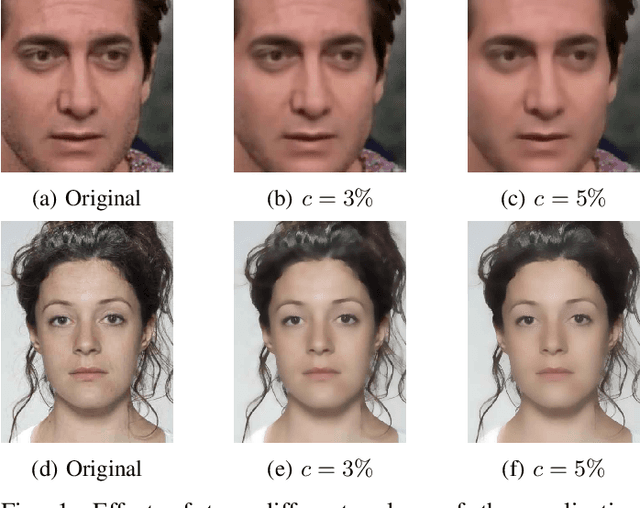
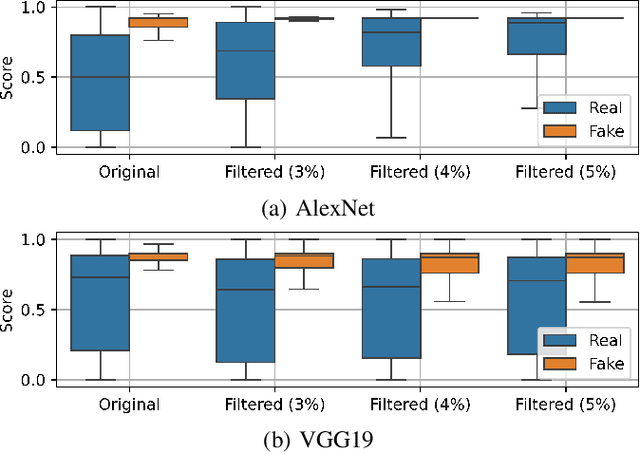
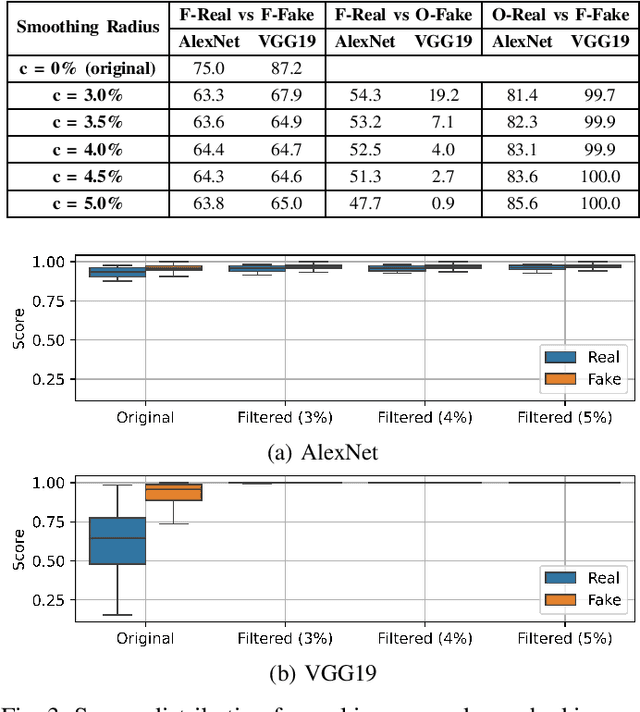
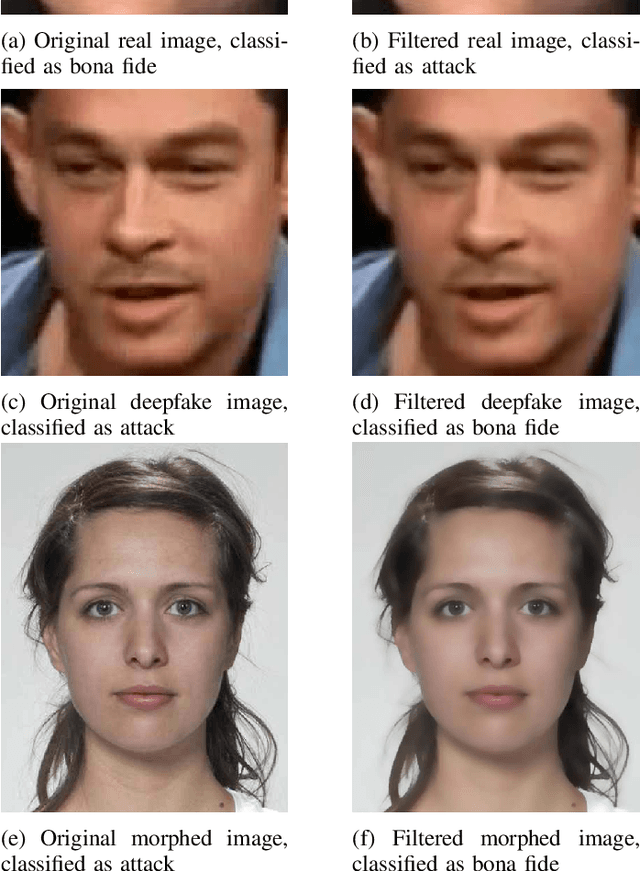
Abstract:Digital beautification through social media filters has become increasingly popular, raising concerns about the reliability of facial images and videos and the effectiveness of automated face analysis. This issue is particularly critical for digital manipulation detectors, systems aiming at distinguishing between genuine and manipulated data, especially in cases involving deepfakes and morphing attacks designed to deceive humans and automated facial recognition. This study examines whether beauty filters impact the performance of deepfake and morphing attack detectors. We perform a comprehensive analysis, evaluating multiple state-of-the-art detectors on benchmark datasets before and after applying various smoothing filters. Our findings reveal performance degradation, highlighting vulnerabilities introduced by facial enhancements and underscoring the need for robust detection models resilient to such alterations.
Vulnerabilities in Machine Learning-Based Voice Disorder Detection Systems
Oct 21, 2024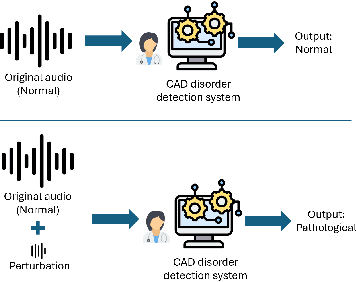
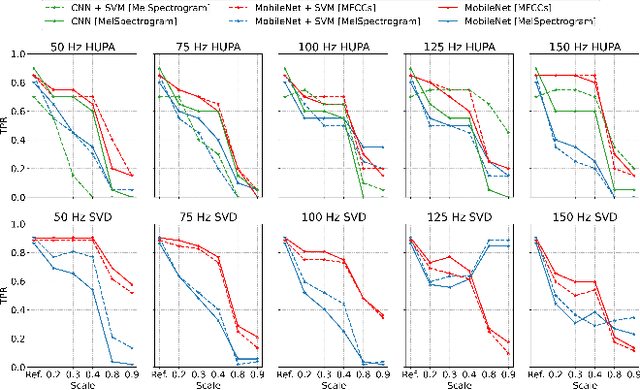
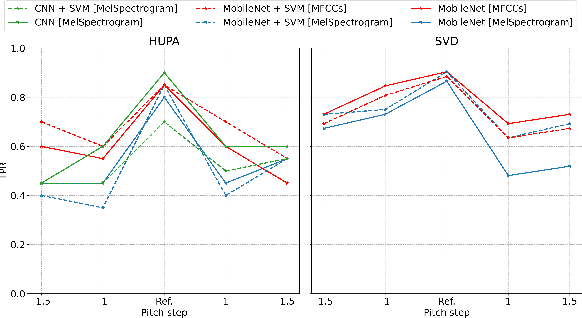
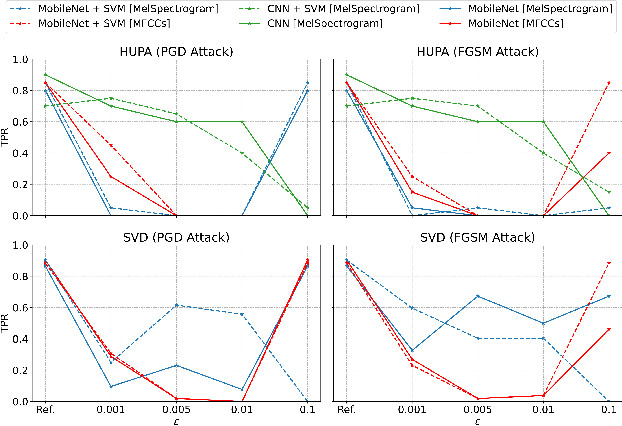
Abstract:The impact of voice disorders is becoming more widely acknowledged as a public health issue. Several machine learning-based classifiers with the potential to identify disorders have been used in recent studies to differentiate between normal and pathological voices and sounds. In this paper, we focus on analyzing the vulnerabilities of these systems by exploring the possibility of attacks that can reverse classification and compromise their reliability. Given the critical nature of personal health information, understanding which types of attacks are effective is a necessary first step toward improving the security of such systems. Starting from the original audios, we implement various attack methods, including adversarial, evasion, and pitching techniques, and evaluate how state-of-the-art disorder detection models respond to them. Our findings identify the most effective attack strategies, underscoring the need to address these vulnerabilities in machine-learning systems used in the healthcare domain.
LivDet 2021 Fingerprint Liveness Detection Competition -- Into the unknown
Aug 23, 2021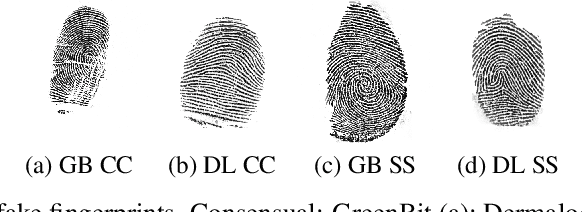
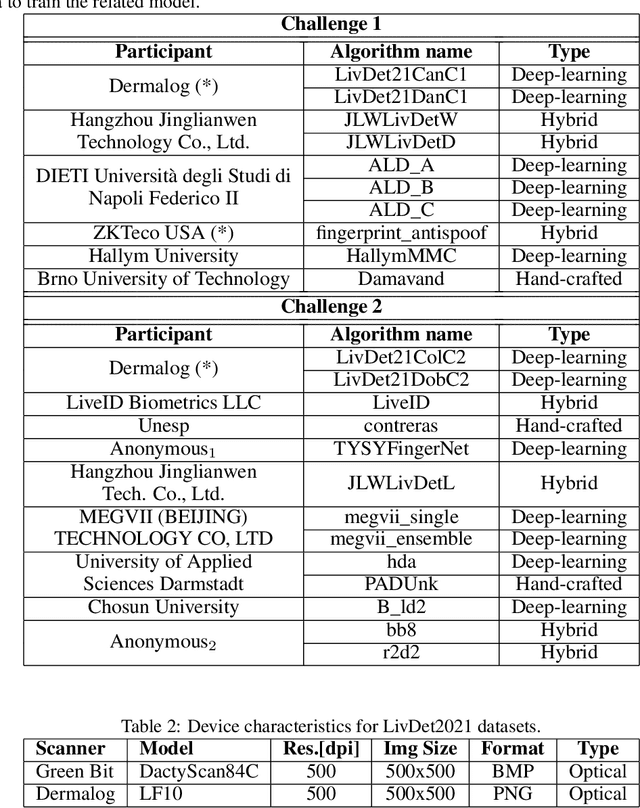
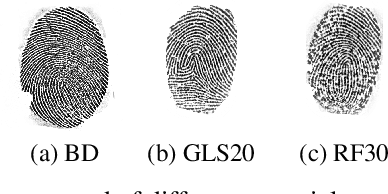

Abstract:The International Fingerprint Liveness Detection Competition is an international biennial competition open to academia and industry with the aim to assess and report advances in Fingerprint Presentation Attack Detection. The proposed "Liveness Detection in Action" and "Fingerprint representation" challenges were aimed to evaluate the impact of a PAD embedded into a verification system, and the effectiveness and compactness of feature sets for mobile applications. Furthermore, we experimented a new spoof fabrication method that has particularly affected the final results. Twenty-three algorithms were submitted to the competition, the maximum number ever achieved by LivDet.
* Preprint version of a paper accepted at IJCB 2021
 Add to Chrome
Add to Chrome Add to Firefox
Add to Firefox Add to Edge
Add to Edge